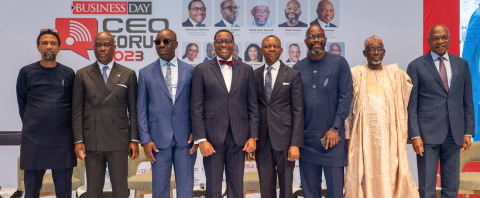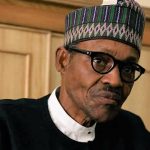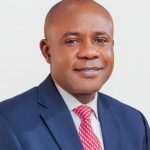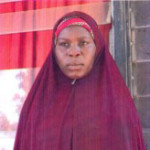Nigerians Are Tired Of Being Poor – AfDB President
Featured, Latest Headlines, News Across Nigeria Friday, July 21st, 2023
(AFRICAN EXAMINER) – President of African Development Bank (AfDB) Group, Dr. Akinwumi Adesina has expressed his worries over the endemic poverty rate in Nigeria, saying that the citizens are tired of being poor.
The AfDB president made the observation while speaking at this year’s edition of BusinessDay CEO Forum in Lagos, penultimate Thursday.
Established in 2001, BusinessDay is an influential daily business newspaper based in Lagos. It has been a leading source of business intelligence and market-moving news in West Africa since 2001.
Dr. Adesina said Nigeria should never be a poor country, adding that the country, which is Africa’s most populous nation must move decisively from managing poverty to managing wealth.
Nigeria, according to him, urgently needs to revolutionise its industrial sector to become an economic giant, noting that this, in turn, will transform the lives of its people and Africa as a whole.
He illustrated his position with the popular movie entitled, “The Lion King”, in which the young lion cub Simba grew up to become the Lion King after his late father was murdered by his uncle Scar, ruling the kingdom, and restoring its glory.
He added that the film itself cost $45 million to make, but by 2019 it had grossed over $11.6 billion, making it the highest-grossing animated film of all time
“The day Nigeria wakes up and becomes a Lion King, everything will change for its people and Africa. The challenge is for the lion to roar. Then we will have the making of an economic giant…Industrial manufacturing can earn Nigeria ten times what it earns from oil dependence.
“That future is already here. It is time to re-imagine industrial manufacturing in Nigeria”, he said.
Also citing examples from Malaysia and Vietnam, the AfDB president stressed that this was doable, noting that both countries have used aggressive horizontal and vertical diversification of industrial production to move from low-value to high-value market products.
He equally observed that while both countries had moved into ‘global manufacturing growth’, creating massive wealth and jobs for themselves, Nigeria remained in ‘survival mode’, still unable to replace its imports of petroleum products, despite being one of the largest exporters of crude oil
“The result is reflected in the comparative wealth of the three countries. While the per capita export value is $7,100 for Malaysia and $3,600 for Vietnam, it is only $160 for Nigeria.
“For now, Nigeria is developing too slowly and far below its potential”, he further told an audience of top government officials, leading industrialists, and other stakeholders at the Forum.
He also appealed to Nigeria’s new president, Bola Tinubu, to revive the country’s comatose manufacturing sector and reposition Nigeria as an industrial hub.
Speaking on the theme, “The Day the Lion Roared! Making Nigeria a Global Industrial and Economic Giant”, Dr. Adesina emphasised that Nigeria’s prosperous future could only be secured by strongly supporting the private sector to unlock wealth that would lift all its people.
To achieve this, he urged the country to implement the right policies, investments, infrastructure, logistics, and financing frameworks, driven by a highly skilled, dynamic, and youthful workforce.
He said this included closing the huge gap between policy ideas and action and also called on the Nigerian government to transform its ports and remove administrative hurdles to improve their efficiency.
“Ports are not military zones, they are zones of economic and industrial transformation”, he stressed.
Dr. Adesina, therefore, encouraged the country to be proactive and ambitious for its manufacturing sector by integrating it into global and regional value chains, adding that includes rapidly moving up the value chain in areas of comparative advantage and greater specialisation and competitiveness.
“A well-developed and policy-enabled manufacturing sector, with export orientation, will spur greater innovation, industrial policy for export market development, and structural transformation of the economy.
“Instead of being consumed with conserving foreign exchange, the focus would shift to expanding foreign exchange through greater export value diversification”, he further explained.
He warned that Nigeria’s industries would remain uncompetitive if the country did not resolutely address the shortage and reliability of electricity.
He also discussed how the African Continental Free Trade Area (ACFTA) represents a huge opportunity for Nigeria to embark on export-led industrial production.
With a collective GDP of $3.3 trillion, the ACFTA is the largest free trade area in the world in terms of the number of participating countries.
The AfDB president also spoke of the urgent need for rapid investment in digital skills for manufacturing, retooling of the workforce, vocational training, digitisation of industrial processes, and investment in digital infrastructure as well as the enabling environment.
Meanwhile the AfDB is investing heavily in Nigeria’s power sector. The investment will support the implementation of the Power Sector Recovery Programme.
The bank has committed $200 million to the Nigeria Electrification Project to help bridge the gap in access to electricity, and $257 million to the Nigeria Transmission Project to strengthen the grid and regional interconnections.
Similarly, it has launched the $20 billion Desert to Power initiative to bring electricity to 250 million people in 11 countries in the Sahel region, including northern Nigeria.
Desert to Power will create the world’s largest solar power zone. The initiative will build on lessons learned from successful projects already financed by the Bank, such as the Noor Ouarzazate solar power project in Morocco and the Ben Ban solar project in Egypt.
He told the gathering that several African leaders were working with the AfDB to create youth entrepreneurship investment banks. He urged Nigeria’s new government to embrace the initiative, which he said would be “game-changing for Nigerian youth”.
“The bank is working closely with the Nigerian Government, seven state governments, and the Federal Capital Territory to design these agro-industrial special processing zones, which will create at least 1.5 million jobs. The African Development Bank and its partners have already mobilised $520 million for the first phase of these zones in Nigeria”, he added.
Earlier in his welcoming address, BusinessDay publisher Frank Aigbogun noted that Nigeria’s economy urgently needed to be revitalised, including the enthronement of a competitive private sector, to achieve higher and more sustainable growth rates capable of giving hope to the people.
“Our dominant youth population demands focused and steady growth. We believe that the leaders of today and tomorrow must be better prepared for the rapid and disruptive changes in the world we live in so that they can proactively create frameworks and collaborations that ensure the optimisation of the nation’s resources”, he stressed.
Related Posts
Short URL: https://www.africanexaminer.com/?p=89560






















